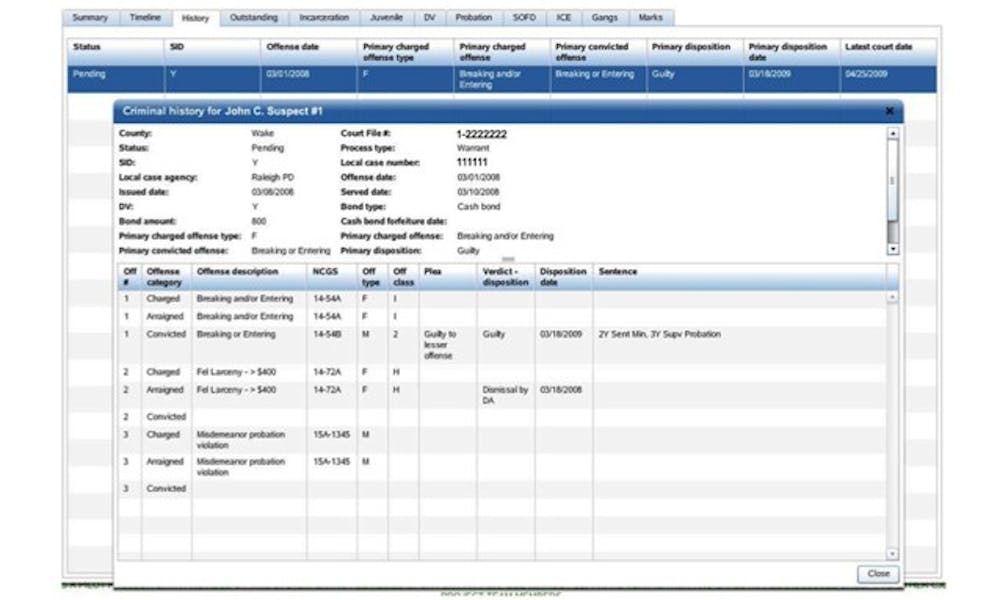Wake County will soon become a more difficult place to commit a crime.
The State of North Carolina is pioneering a new integrated crime database, called Criminal Justice Law Enforcement Automated Data Services—CJLEADS—to replace its current, outdated system.
“In 2008, following the murder of the Duke student [Abhijit Mahato], as well as the [University of North Carolina at Chapel Hill student Eve Carson], the North Carolina legislature recognized the need to integrate criminal data systems,” said Kay Meyer, project manager for data integration in the Office of State Controller.
An integrated crime database had been recommended by the North Carolina General Assembly in the mid-1990’s, Lori Freeman, Wake County clerk of superior court, said. With the murders of Mahato and Carson the legislature renewed its commitment, she noted.
Meyer added that currently, law enforcement officers use systems which require them to log on to multiple databases. In the past, an officer in the field had no access to a suspect’s criminal record from other jurisdictions.
“When we stop a person or individual out in the field, it will tell us whether or not this person is wanted or on probation,” Wake County Sheriff Donnie Harrison said. “It will give us the history we need. You used to have to go to two systems.”
Wake County will be used as a pilot for the system, with a trial version arriving last May, Meyer said.
CJLEADS can also be used as a tool by prosecutors and judges if they need a complete and accurate criminal history to determine appropriate sentences for defendants.
“The goal of CJLEADS is to provide, in the most user-friendly capability as possible, a comprehensive view of the offender so the prosecutors can make decisions,” Freeman said.
One of the unique functions of the system is the watchlist function, which will alert a user via e-mail when someone on his or her watchlist is arrested, paroled or has a probation status change, Meyer said. Additionally, the system will include all available photographic images for each suspect.
According to the Office of the State Controller’s Web site, CJLEADS will draw information from both the Department of Correction, including incarceration and probation information, and Administrative Office of the Courts’ records, such as dockets, warrants and orders for arrest.
Each suspect’s file includes criminal history, domestic violence, community corrections, jail and prison sentences, marks/scars/tattoos, gang affiliation and sex offender registry.
CJLEADS is being developed by SAS Institute in Cary and the Wake County Criminal Justice Partnership Advisory Board.
The development process has involved feedback from members of several law enforcement agencies, including police officers, district attorneys and judges.
“We’ve had meetings with different agencies, everyone gives their input,” Harrison said. “Everyone has had a little bit of the pie trying to get to the controller’s office what we need. We’ve all had a part in it.”
By Fall 2010, the system will be in use throughout Wake County, with plans to expand it statewide in place for 2011.
“We’re 10 years further along with the capabilities, some of the challenges that arose when the system was conceived can now be handled in different ways,” Freeman said. “This is light-years ahead of where we currently are.”
Get The Chronicle straight to your inbox
Signup for our weekly newsletter. Cancel at any time.

